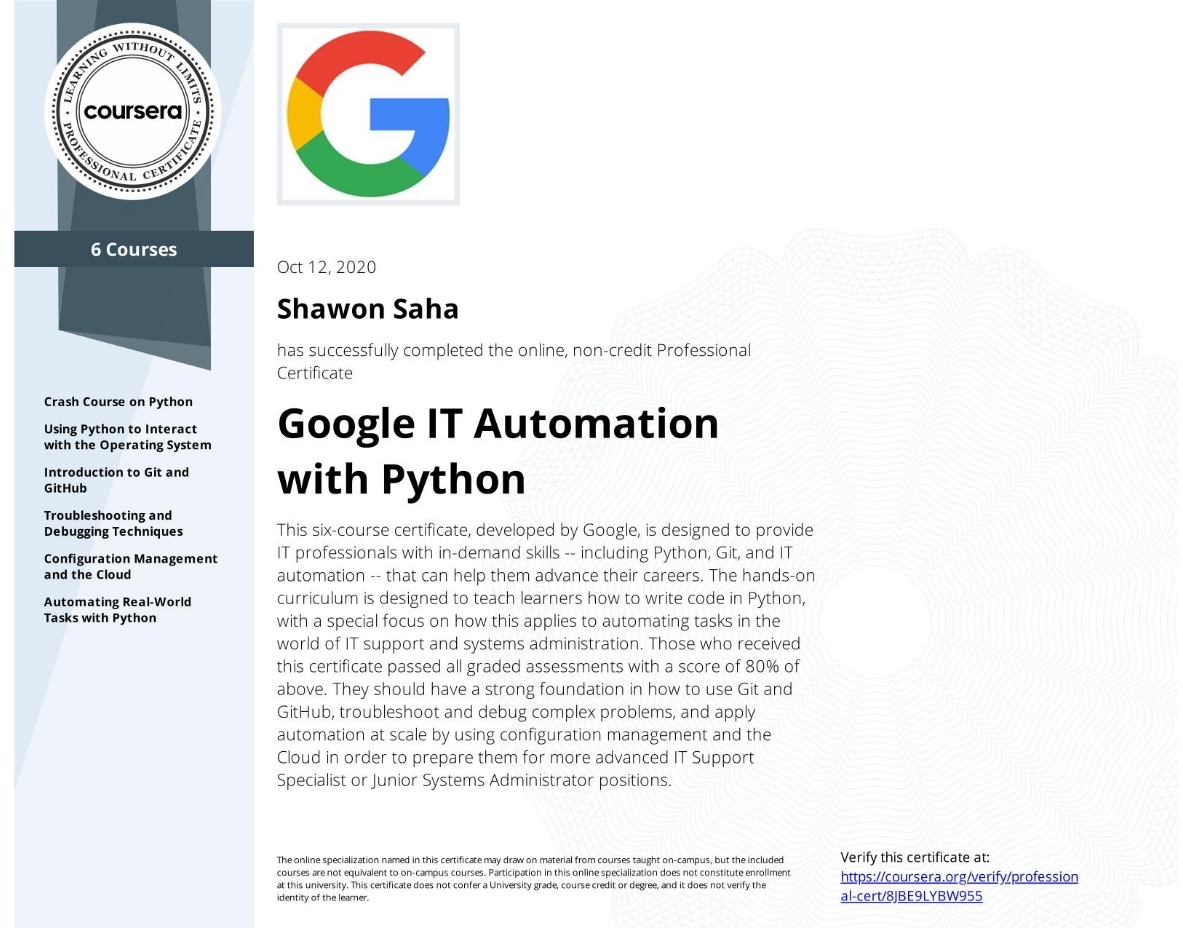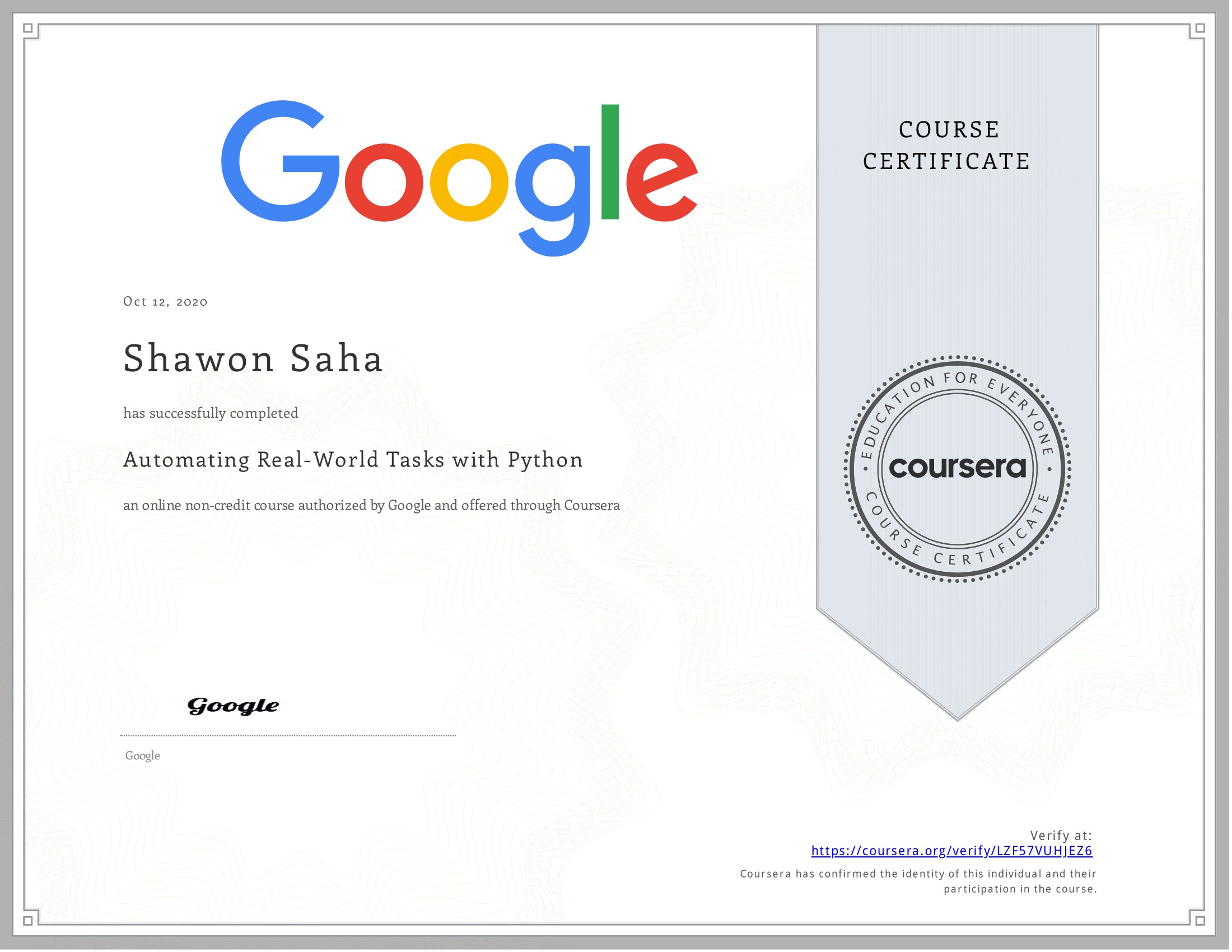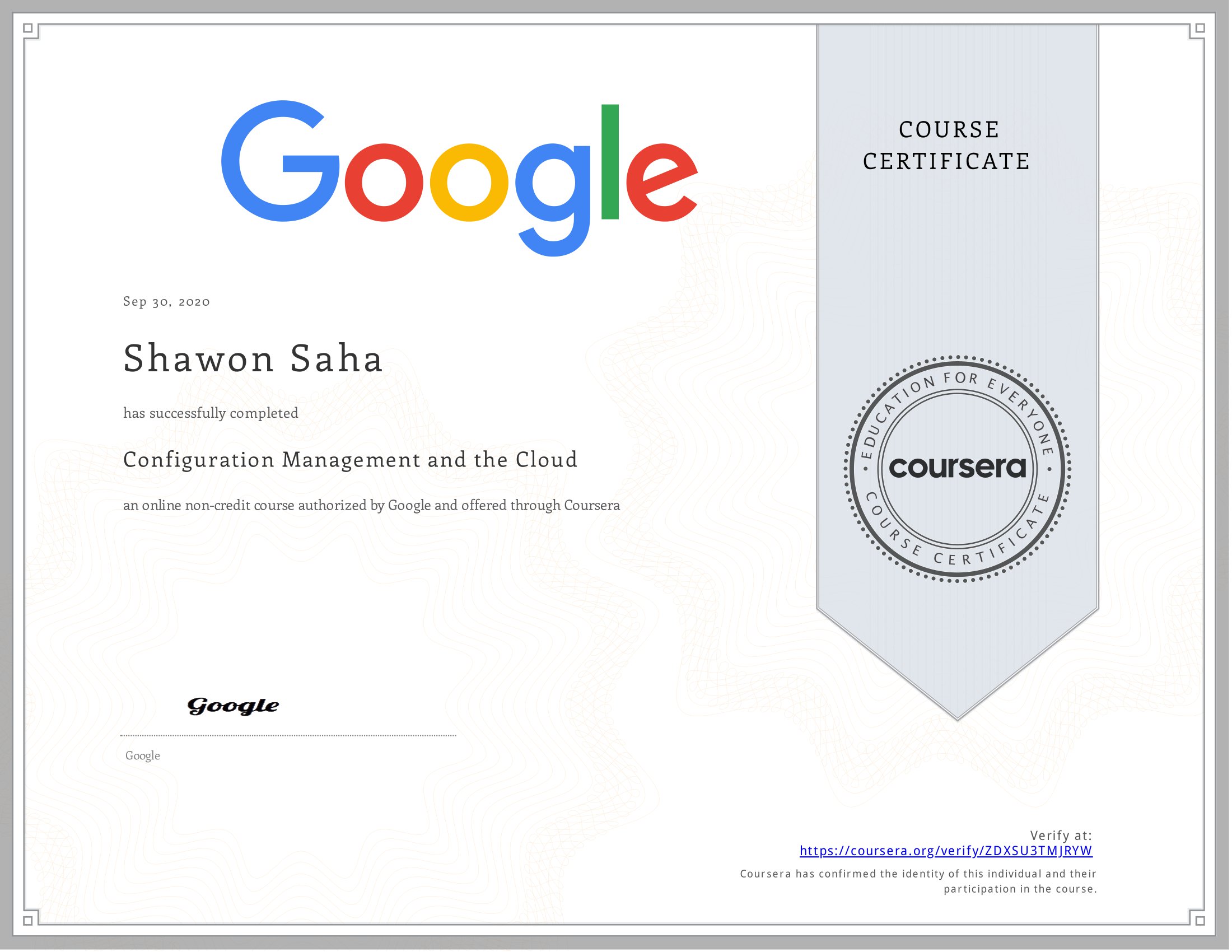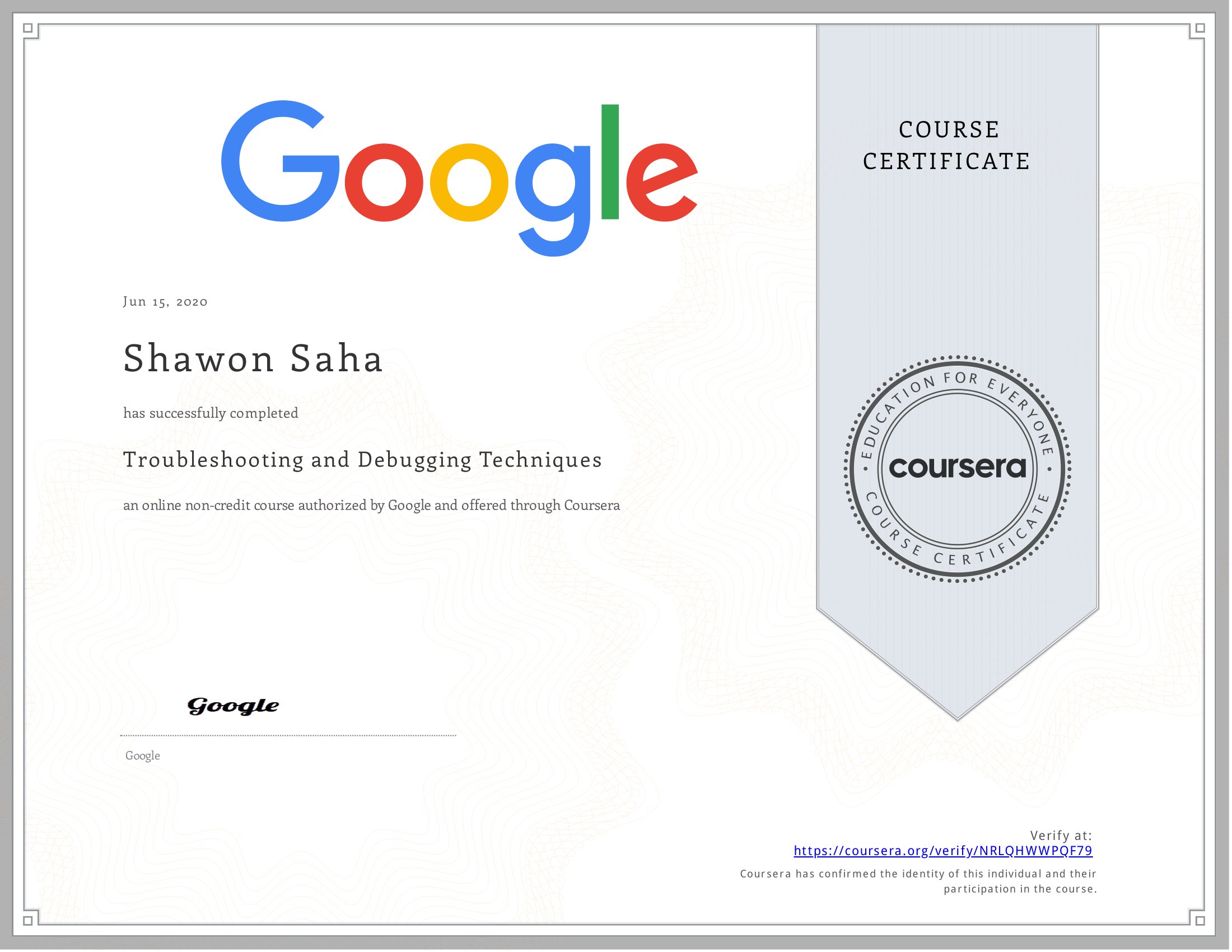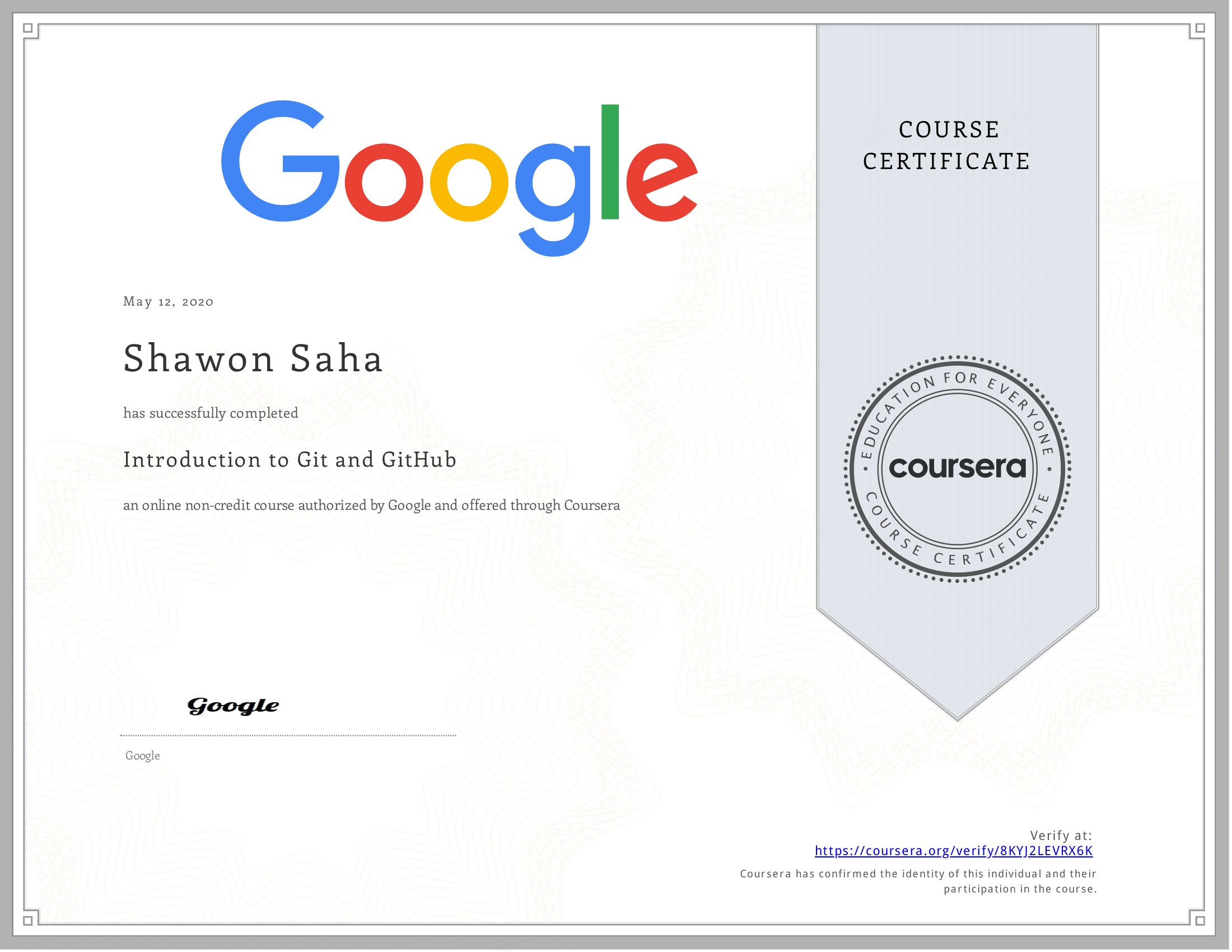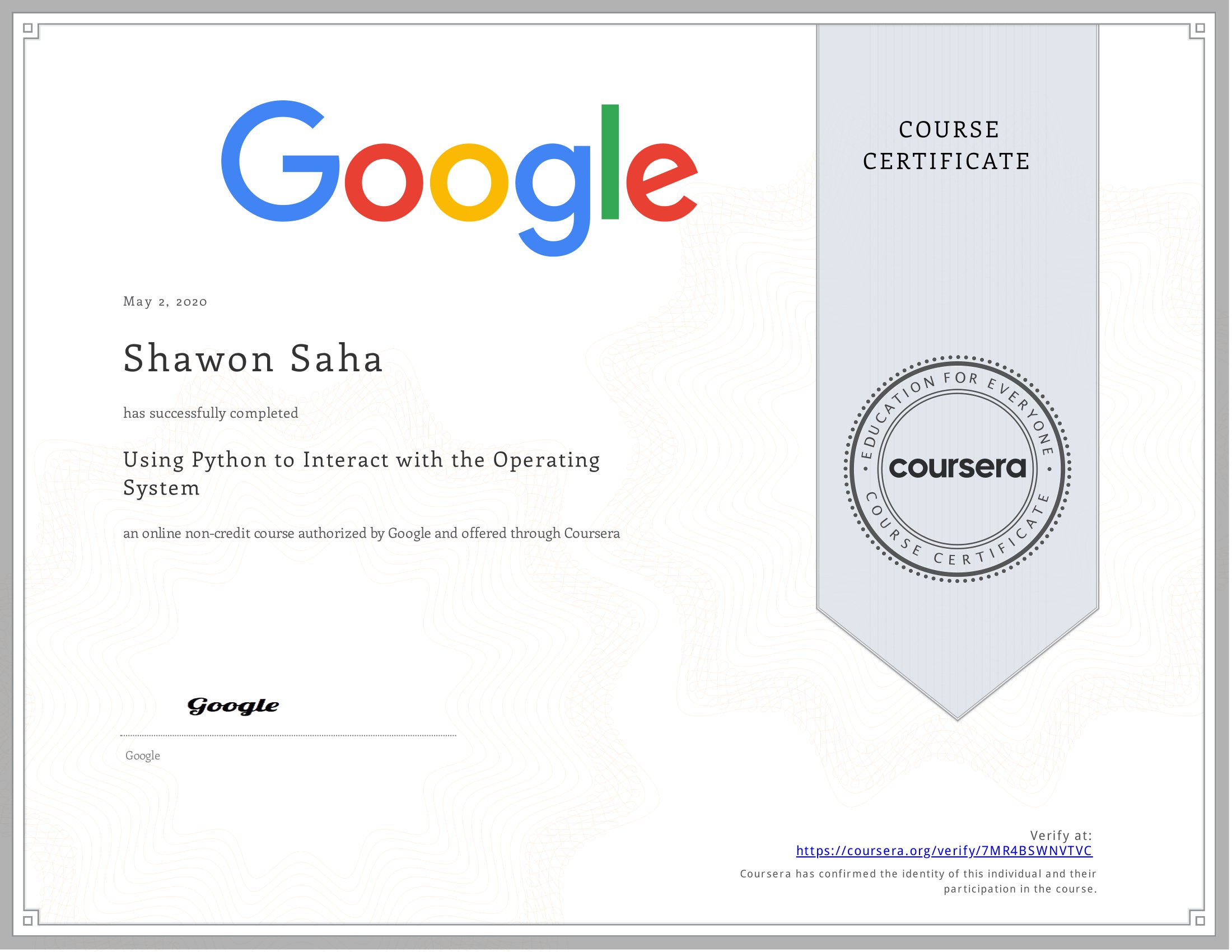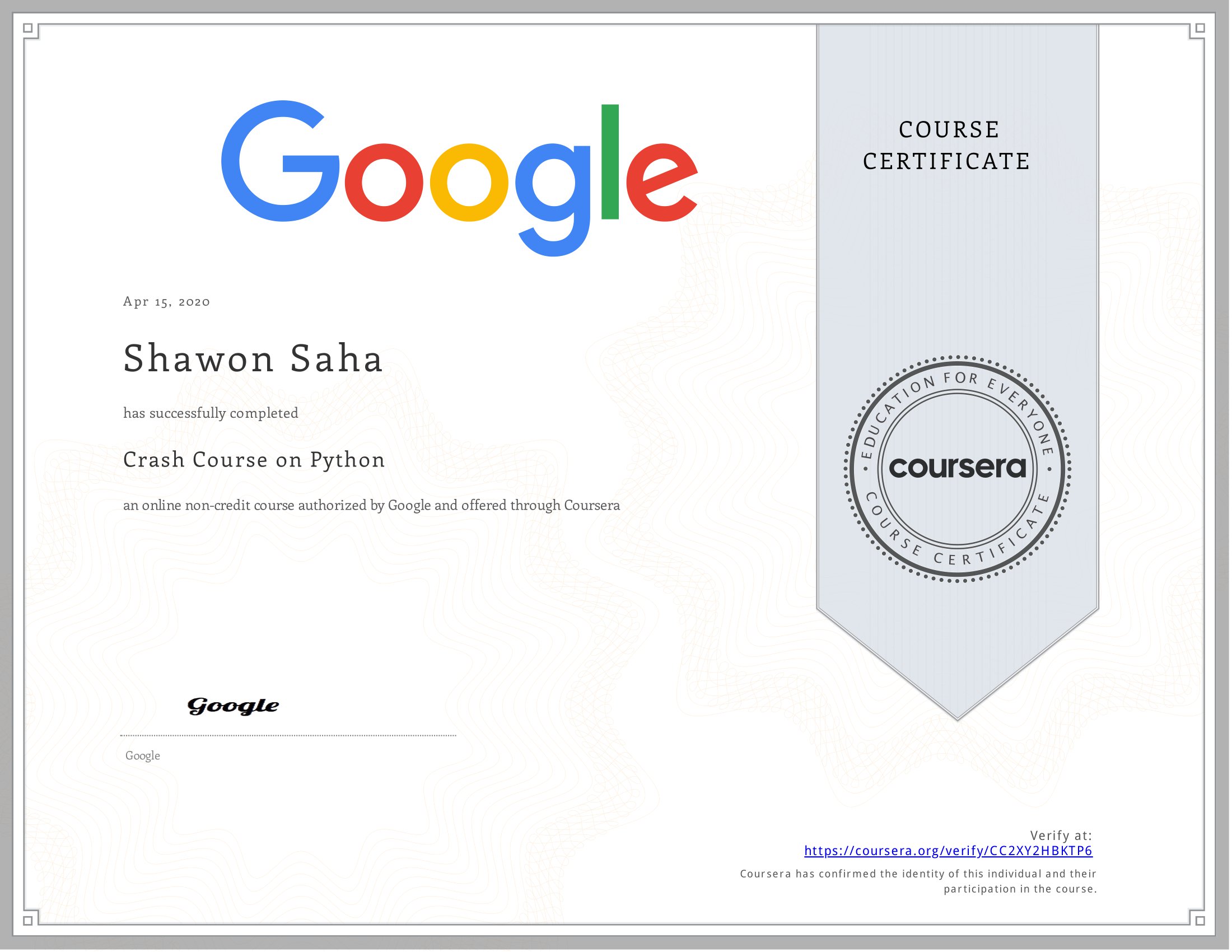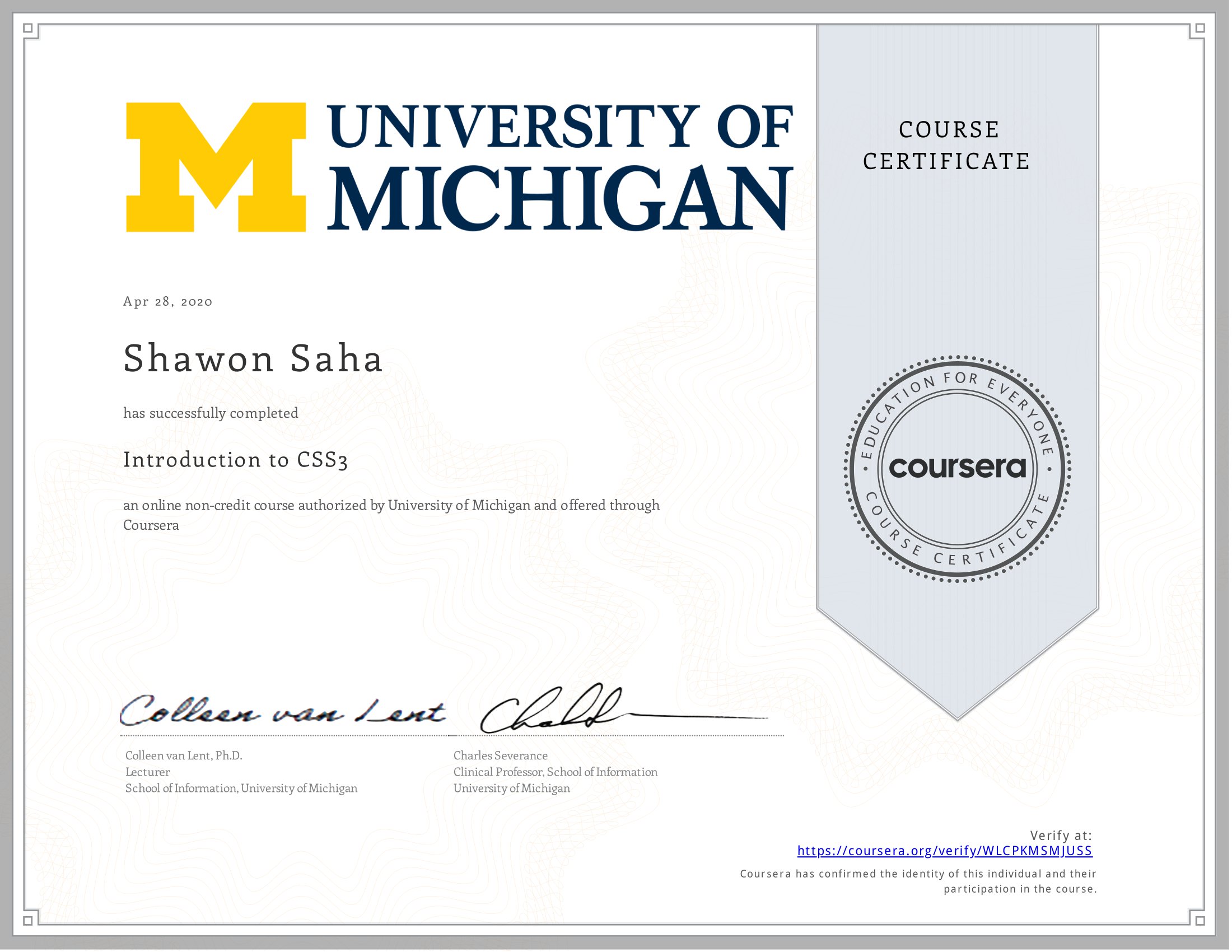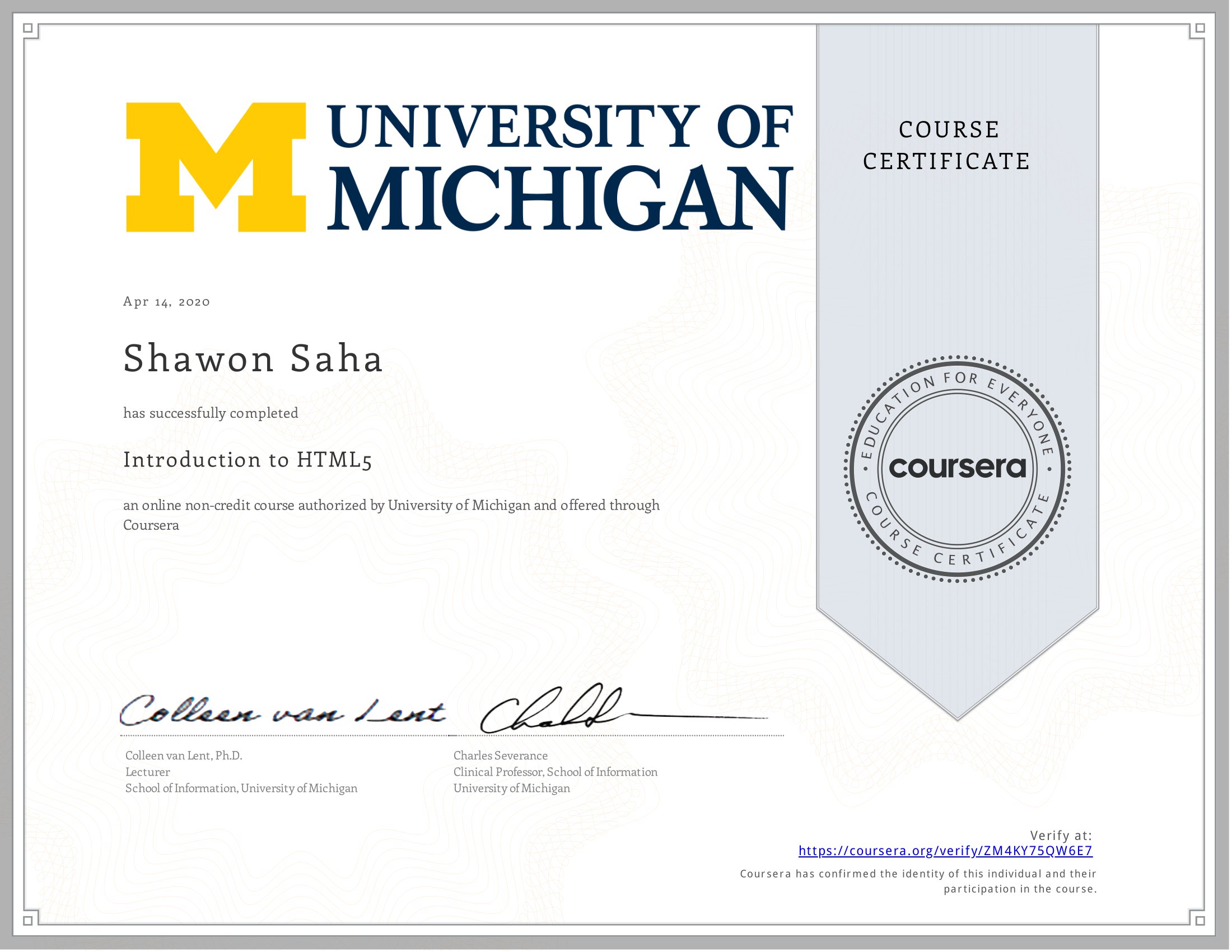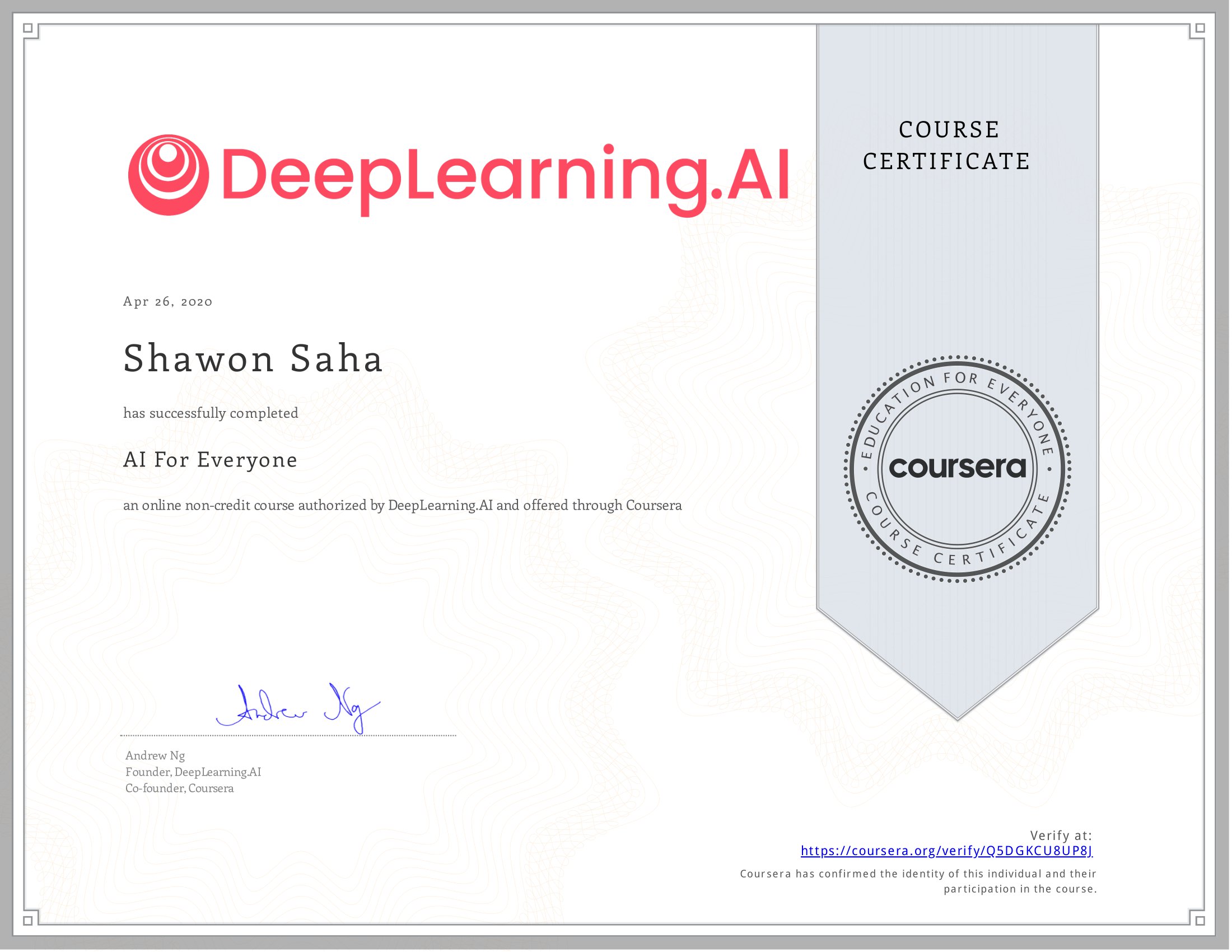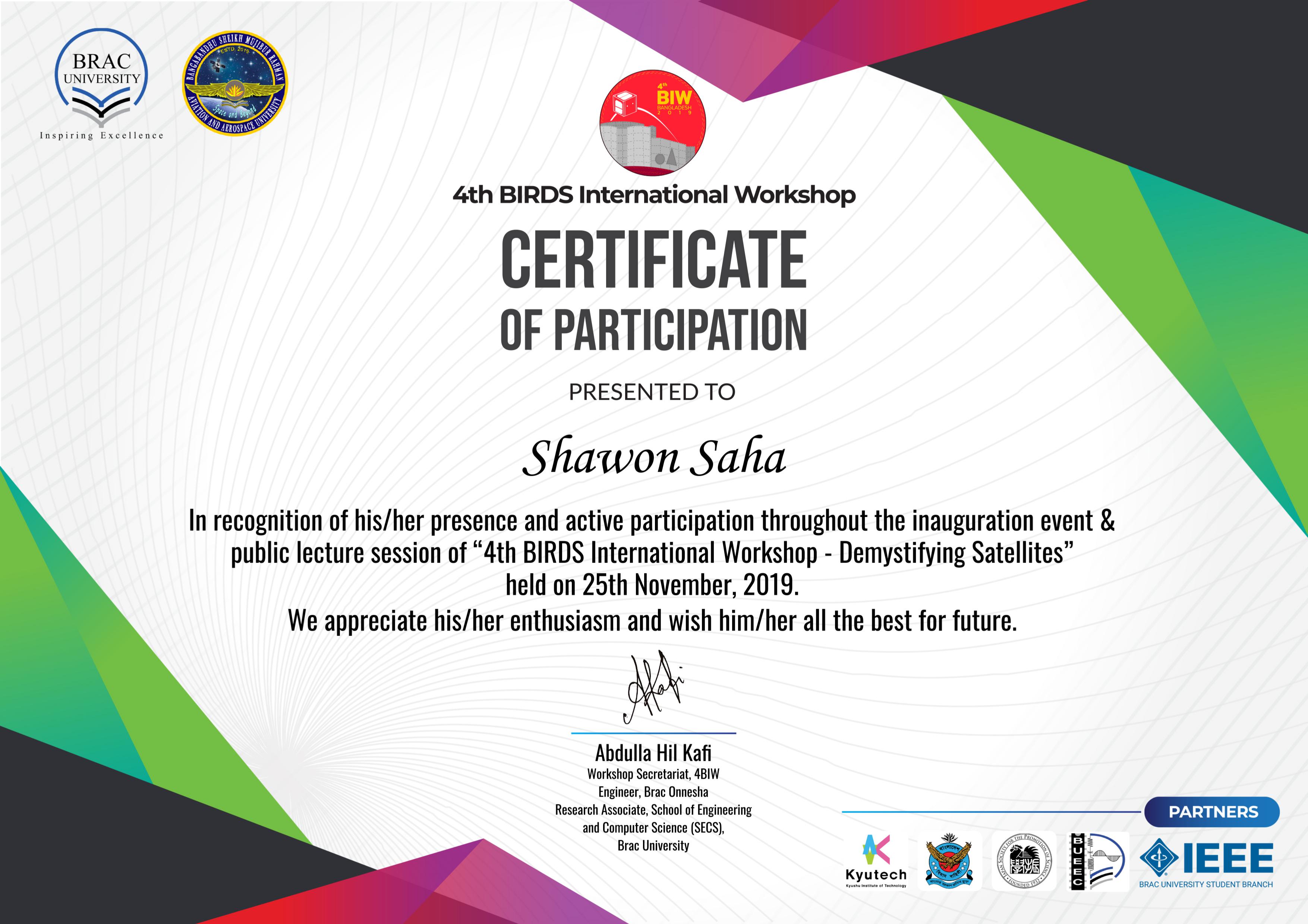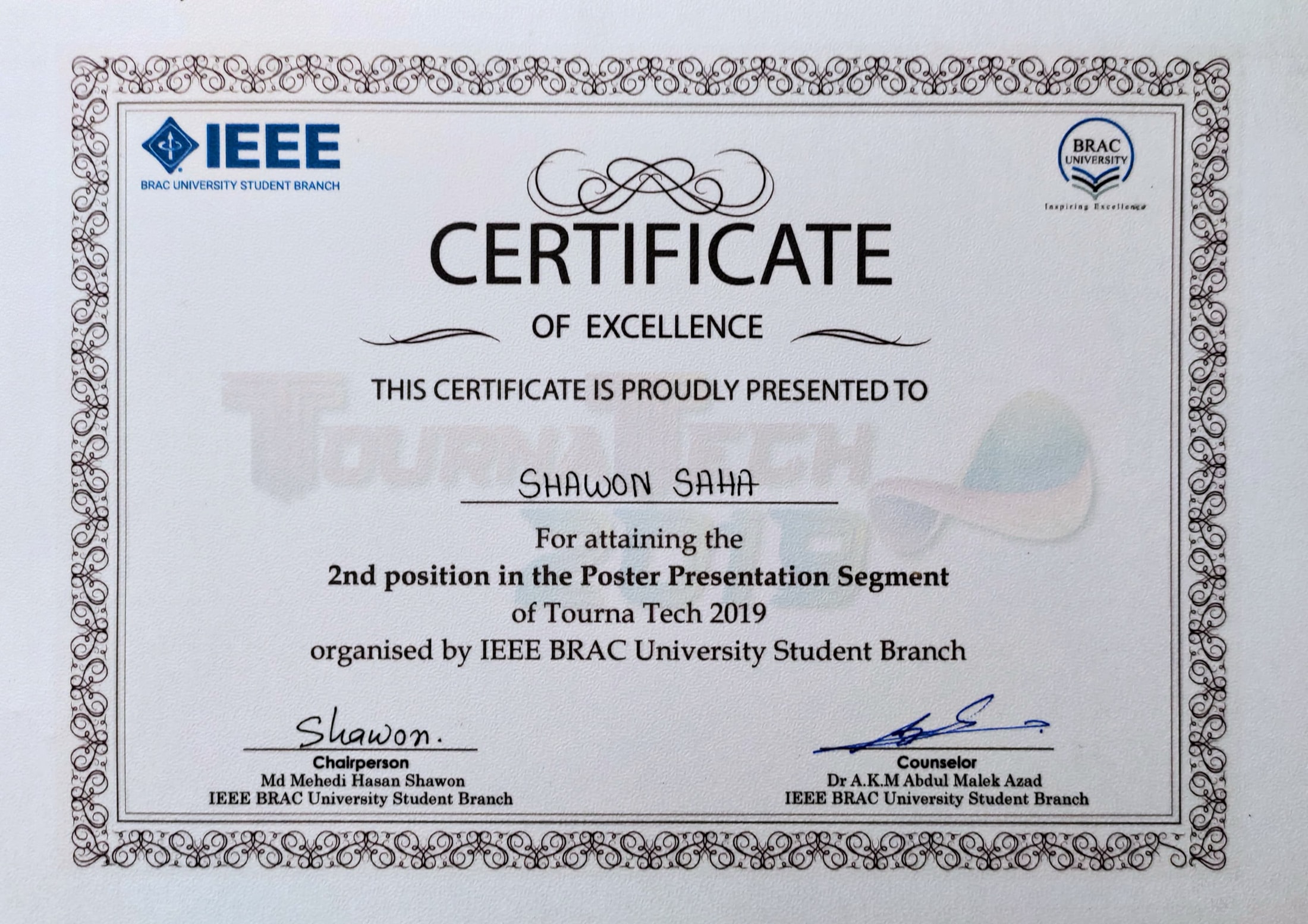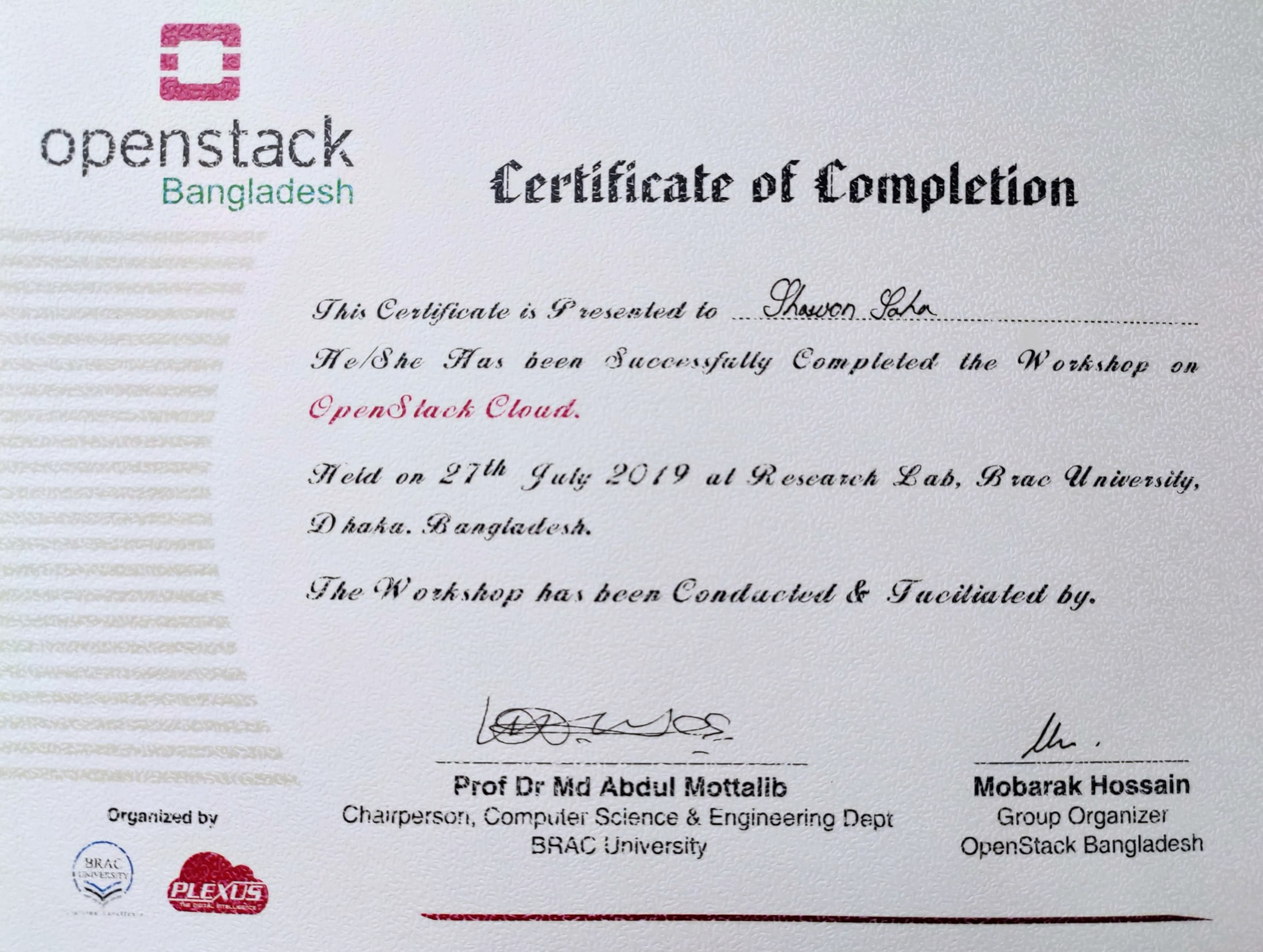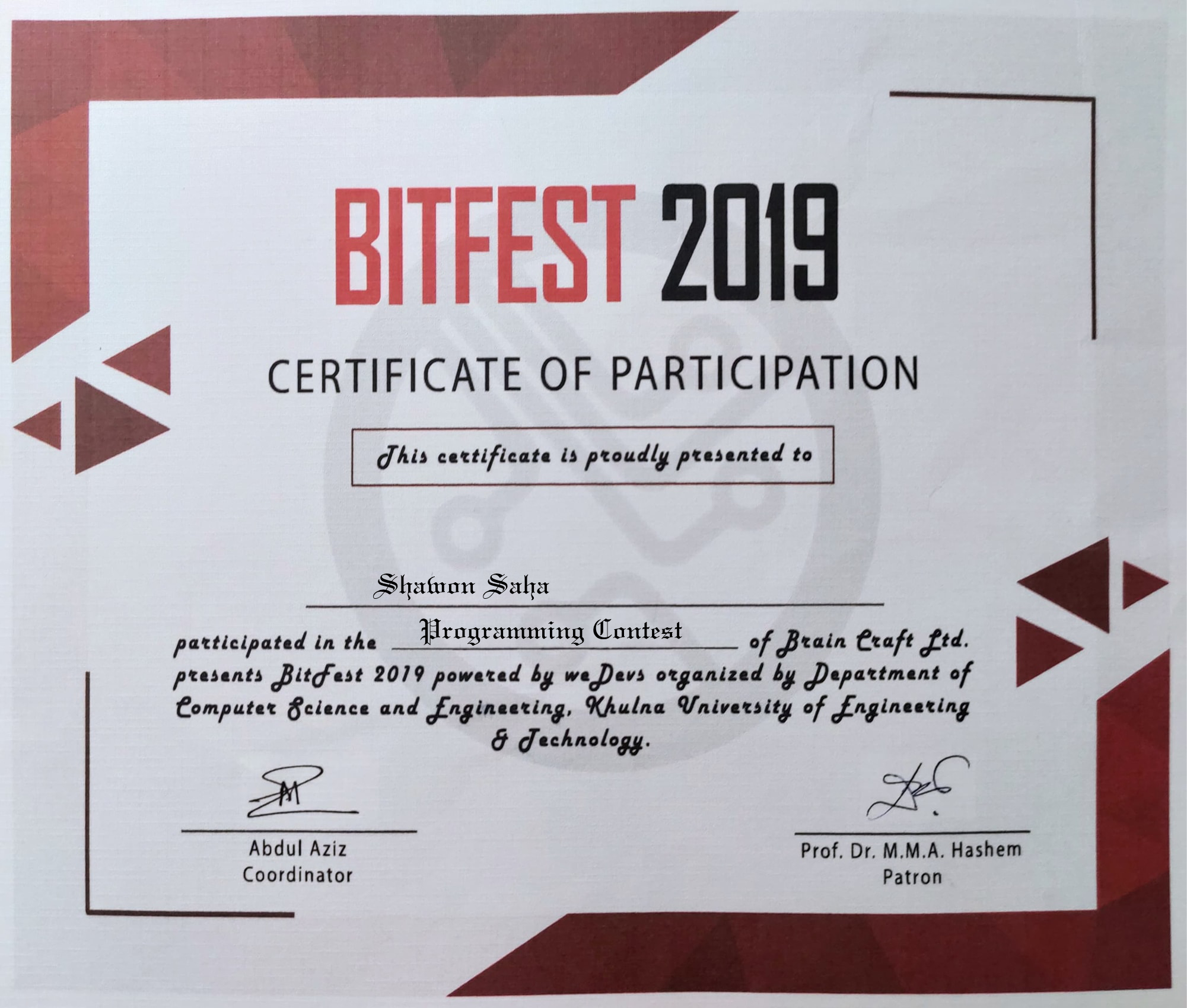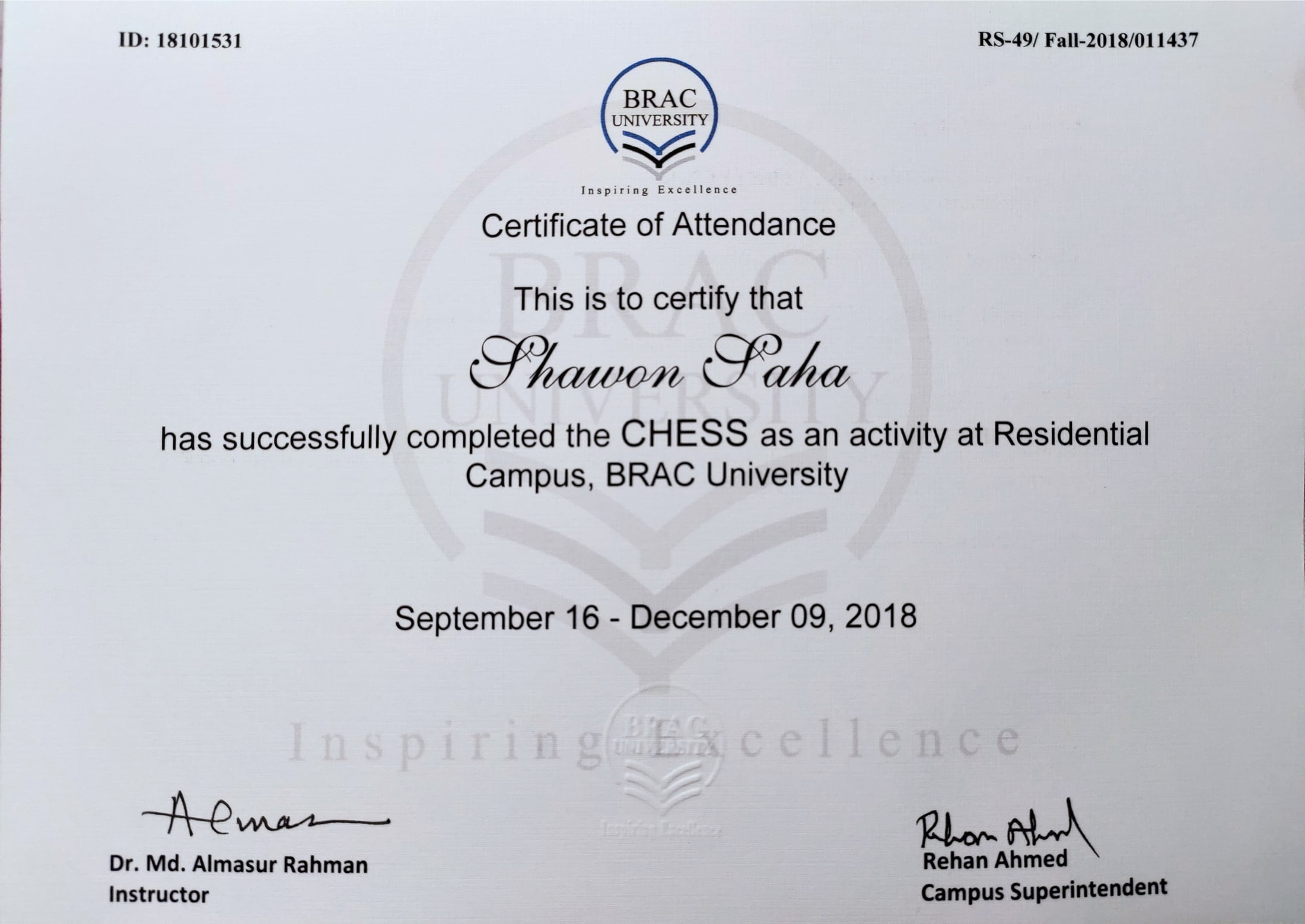Shawon Saha
I am a dedicated problem solver with a passion for mathematics, logic, and technology. Proficient in Python, Java, and JavaScript, I thrive at the crossroads of innovation and technical expertise. Fluent in English, I communicate complex ideas effortlessly and explore the realms of Machine Learning, Data Science, Computer Vision, Cloud Computing, and Cyber Security with an unwavering curiosity.
Education
BSc in Computer Science and Engineering
- CGPA: 3.50/4.00
- Dean's List [Fall 2020]
- Undergraduate Thesis: Intelligent parking system using machine learning.
Higher Secondary School Certificate
- GPA: 5.00/5.00
Secondary School Certificate
- GPA: 5.00/5.00
Experience
Frontend Engineer
- Led frontend development for the Plutus project, utilizing Next.js for enhanced performance and SEO.
- Implemented user interfaces for authentication, profile management, contract analysis, and loan management features.
- Maintained a clean, modular codebase adhering to best practices for scalability and maintainability.
- Coordinated with backend team and managed project tasks using Linear.
- Leveraged TypeScript, shadcn, TailwindCSS, Git, and AWS to build robust solutions.
Full-stack Web Developer | Internship
- Collaborated on Muktopaath, a government-funded e-learning platform, implementing new features and planning future developments.
- Developed custom UI designs using Tailwind CSS and resolved interface issues with VueJS.
- Implemented advanced search functionality with Apache Solr and optimized database performance using MySQL.
Projects

Intelligent Parking System
An ML-based system for efficient parking management, developed as part of undergraduate thesis.

Aridus Heater Ecommerce
A modern ecommerce webapp for room heaters with customization features.

EOS Energia Landing Page
A modern, user-friendly landing page and dashboard for a solar energy company, showcasing renewable energy solutions with user authentication.



